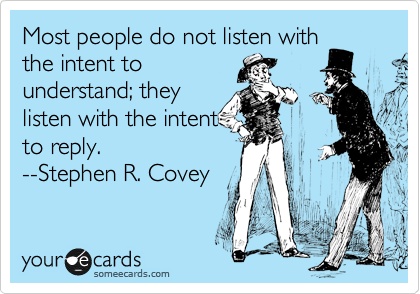Business Practices: How to Be A Listener
Every now and then, we like to write about best business practices that we feel are important in maintaining business-to-business relationships. This month, our HR Director, Kris, is giving tips on how to be a listener. In working with clients, we know that we cannot provide our best possible service without listening to their concerns, ideas, and needs first. We also understand how important listening is internally in a business. This month, we’re taking notes and learning how to be better listeners among our coworkers and clients!
Effective listening is to know the difference between what is said, what you hear and what the message is. Communication is so important in all aspects of life. Whether you are with family, friends, coworkers, clients or in the general public, attempt to listen 75% of the time and speak 25% of the time. Everyone deserves to be heard and you will be respected for taking the time to listen.
If you like to dominate a situation or feel you know everything there is to know about a subject, you’re probably a poor listener. Remain open to new ideas instead of impatiently waiting for a chance to butt in with what you think is the final word on the subject.
There are four main stages of listening:
- Sensing – Taking in the message. The mind can listen four times faster than a person can talk. Focus on what’s being said. Look directly at the person talking and watch their body language. Listen for their tone. Listen for the central ideas, not for all the facts.
- Understanding– Process the message. Don’t focus on what you’re going to say next. Do not interrupt.
- Evaluating – Sort and categorize what you’re hearing. Suppress any desire to respond emotionally. Reflect back and ask if you are hearing accurately.
- Responding – Regularly share indications that you are listening to them. Put aside any distractions. Simple gestures like nodding, raising the eyebrows, or leaning forward all can convey interest. Occasional comments, such as “I see,” “That’s interesting,” or “Tell me more about that,” if said with genuine interest, can go a long way toward reassuring the speaker.
Improved listening will enrich your business success and relationships. Think about how many problems could be solved if we practiced good communication. Not only will improved listening help your relationships, it will help your bottom line. Before you speak, make sure that the speaker has had a chance to make his or her point.








